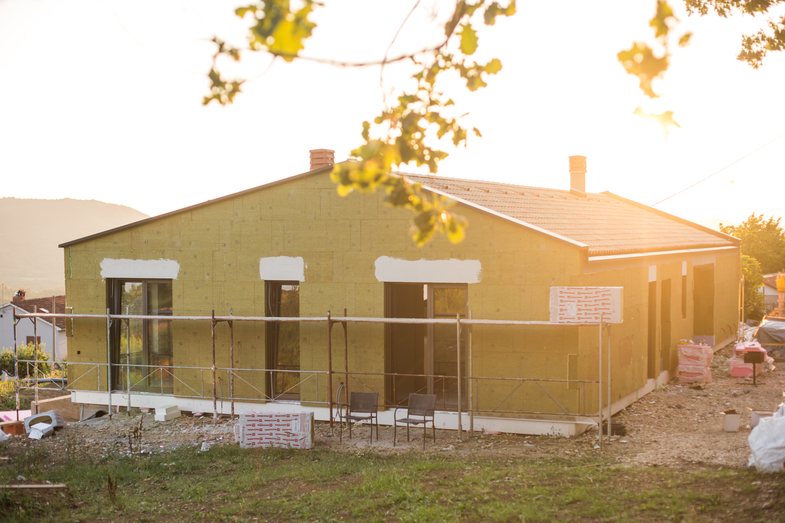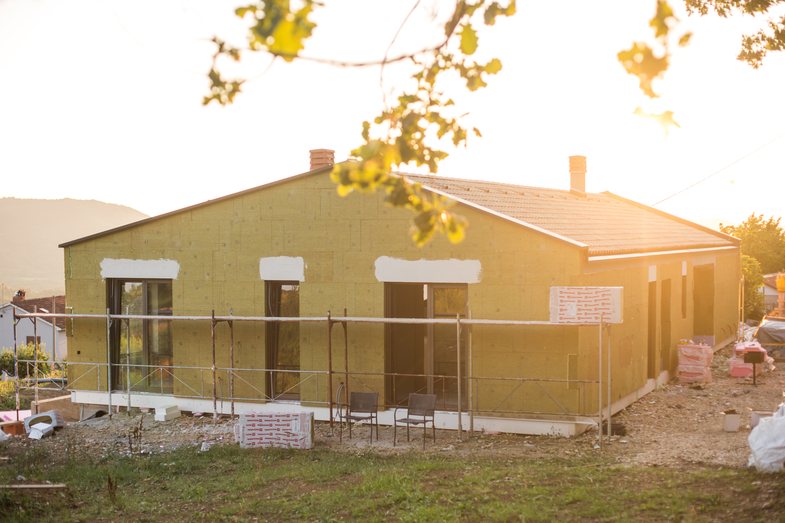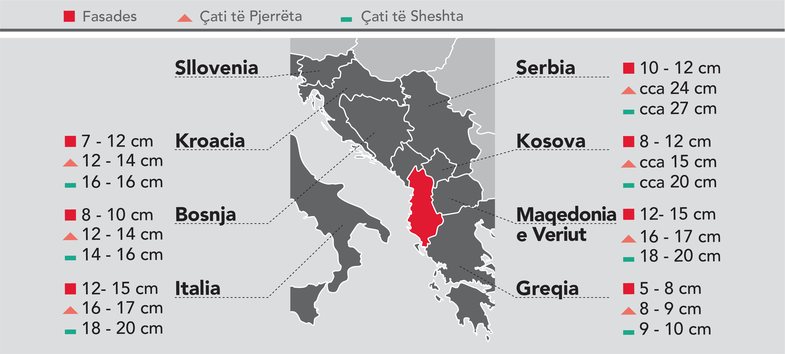
The global leader in the production of innovative stone wool insulation materials, ROCKWOOL, brings a detailed analysis
on thermal insulation in Albania and neighboring countries.
ROCKWOOL, a global leader in the production of innovative stone wool insulation materials, has analyzed in detail the insulation practices in Albania and neighboring countries, drawing valuable conclusions and good recommendations for achieving EU standards. Thermal insulation is a key factor of energy efficiency in buildings, directly impacting comfort, energy consumption, and financial costs. Installing proper insulation results in significant energy savings, reducing heating and cooling costs, as well as creating a more comfortable indoor temperature. Reducing energy consumption also leads to reduced greenhouse gas emissions and improved air quality.
Albania has a significant opportunity to improve its thermal insulation standards, which would result in lower energy bills, higher indoor comfort, and less impact on the environment.
"Several countries in the region have already set national standards for thermal insulation and have conducted educational campaigns to highlight its importance, while also introducing financial incentives for construction projects that meet specific energy efficiency criteria.

By adapting these practices, Albania can further improve the energy efficiency of buildings, bringing significant benefits to both citizens and the environment", stated Paolo Migliavacca, Director of the Business Unit for Italy and Eastern Adriatic, ROCKWOOL.
Thermal insulation practices in neighboring countries
Neighboring European Union countries, such as Greece, Italy, Croatia and Slovenia, in addition to their internal rules, follow EU guidelines on energy efficiency. North Macedonia, Bosnia and Herzegovina and Serbia have also adopted standards similar to those of the EU.

The thickness of wall insulation in European Union countries ranges from 5 to 10 centimeters. For sloping roofs, from 8 to 14 centimeters, while the insulation thickness for flat roofs ranges from 9 to 16 centimeters. Slovenia has the best standards in the region, with the thickness of wall insulation ranging from 18 to 20 centimeters. 27 centimeters for flat roofs and about 24 centimeters for sloping roofs.
Stone wool offers a solution to today's biggest sustainability and development challenges, resisting temperatures of up to 1000°C, protecting against mold and external noise, facilitating the management of water consumption, and remaining unchanged even after 65 years of installation. Based on one of the natural resources, volcanic rock, stone wool is one of the highest quality and most durable materials for building insulation, and the Danish company ROCKWOOL has been a leader in the production of stone wool insulation materials for 85 years.





